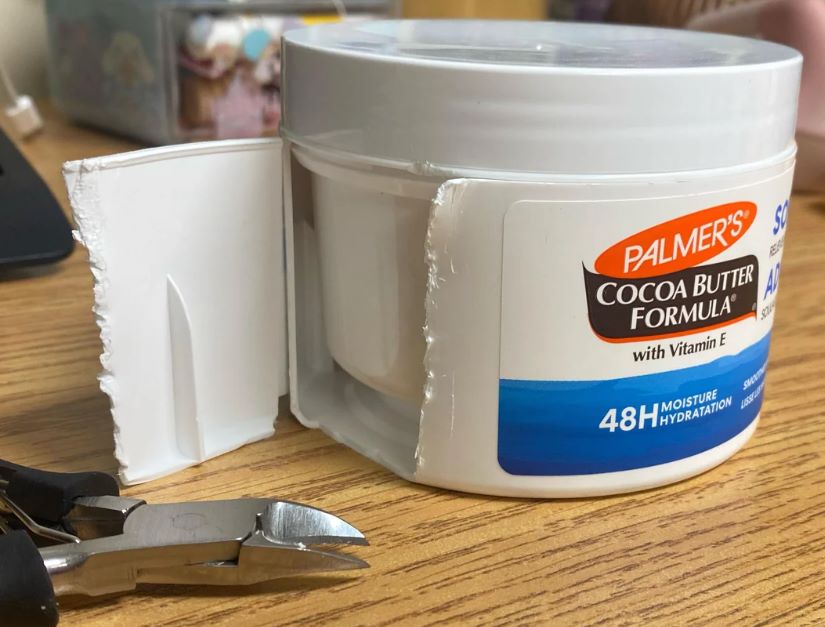While corporations have been quietly shrinking products for decades, it seems like it's gotten noticeably worse in recent years.
This business strategy allows companies to pass on rising operational costs to consumers and keep profits high. Businesses may not charge more for the products, but customers still get the short end of the stick.
One Redditor called out a major beauty brand for its sneaky shrinkflation practices, triggering a heated discussion in the comments.
What's happening?
The Reddit user posted a photo of a tub of Palmer's Cocoa Butter that had an extra layer of plastic packaging to hide a much smaller container inside.
"I'm disappointed that Palmer's resorts to deceptive packaging," the poster wrote.

They probably wouldn't have suspected a thing if they hadn't noticed the container jiggling around and opened the outer packaging for further inspection.
"Just thinking about that is enraging," one commenter shared.
"They need to pass environmental laws which prohibit wasteful packaging like this, if not just for the environment but also to prevent deception," another said.
"How is this not illegal?" someone else asked.
Some speculated that the product was double-packaged to keep the natural ingredients from spoiling during shipping. However, one Australian user said the product isn't insulated there, so that may not be true.
Why is plastic waste important?
In this case, extra plastic packaging means the user gets less product for their money, forcing them to buy it more often to compensate.
In the larger picture, plastic has been linked to an array of health problems in humans, from reproductive issues to obesity. Exposure to unnecessary plastic could worsen these conditions, especially in people who live close to landfills or burn sites.
Furthermore, it's estimated that the world produces around 430 million tonnes (over 473 million tons) of plastic waste per year, according to the United Nations. Unfortunately, most of that ends up in the oceans, other waterways and natural areas, or landfills — posing a hazard to animals, water sources, and plant life. The UN reported that less than 9% of plastic waste gets recycled (though some estimates are even lower).
Is Palmer's doing anything about this?
While The Cool Down didn't find any information about Palmer's policies surrounding plastic waste, the company is supporting sustainability in other ways. According to Palmer's, its cocoa butter is ethically and sustainably sourced from Ghana, and its coconut oil is Fair Trade Certified and harvested from an organic supplier in the Philippines.
In addition, Palmer's is a member of several organizations that support sustainable farming and conservation efforts: the World Cocoa Foundation, the Global Shea Alliance, the Forest Stewardship Council, and Roundtable on Sustainable Palm Oil.
What's being done about plastic waste more broadly?
Major brands are making sustainability changes to reduce plastic pollution. For example, Starbucks is testing compostable lids for its cold drinks at select California and Minnesota locations, and Best Buy is rolling out recycled packaging materials in partnership with Sealed Air.
If you want to help, consider swapping disposable plastic products with reusable options, such as grocery bags, water bottles, and food containers.
Join our free newsletter for good news and useful tips, and don't miss this cool list of easy ways to help yourself while helping the planet.









